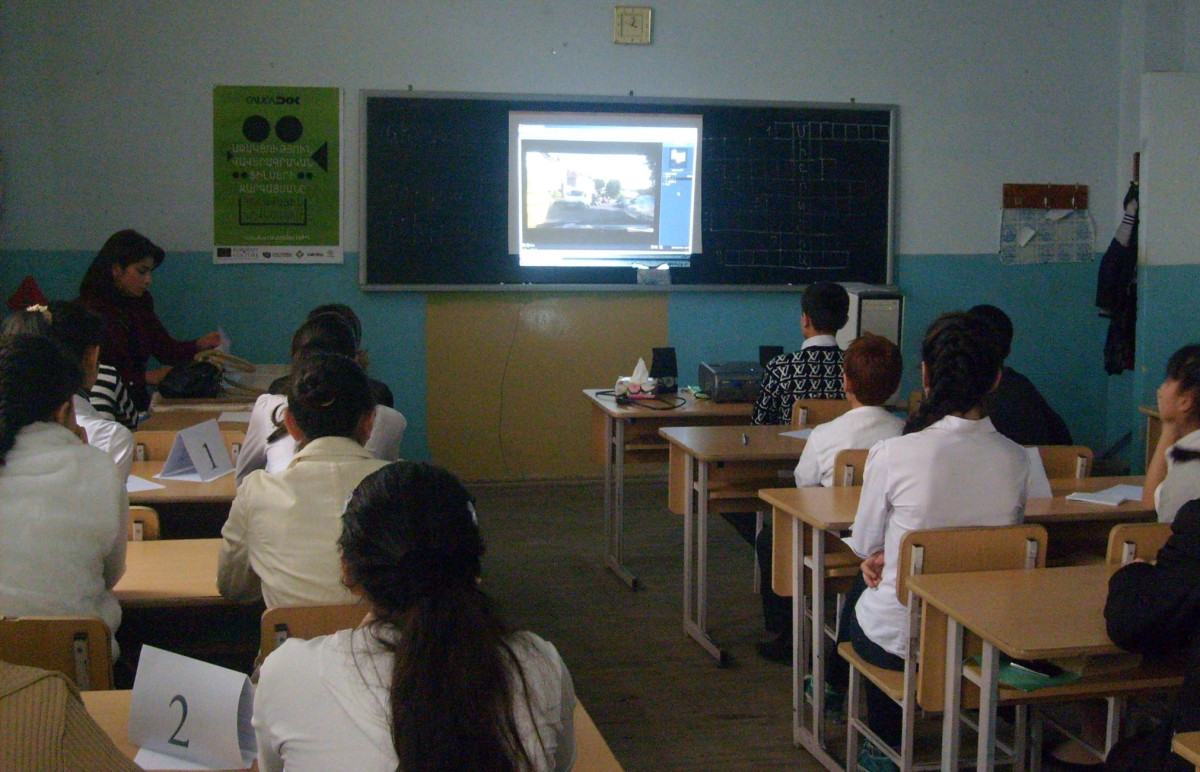CAUCADOC: Teaching through Documentary Films
Published: Apr 29, 2014 Reading time: 2 minutes Share: Share an articleThis teaching method has been implemented in 67 schools of Syunik, Vayots Dzor, Ararat and Armavir, its implementation being targeted at raising children’s awareness of migration issues, as well as at holding debates, developing critical thinking skills and shaping civil attitudes to human rights or other related issues.

Our experience shows that screening of a documentary film is one of relatively simple, nevertheless very effective mean to familiarize the public with a wide range of topics of world and domestic affairs. Film, as a modern audiovisual device, can not only present information on these topics in an attractive way but also bring unique stories of real people, whose lives directly and indirectly affect them. Documentary films can serve as motivation for active resolution of specific issues and problems. Screening can be single-use, but you can also present a complete series. In this case, it is necessary to prepare the concept in advance.
In 2013, 88 social science teachers representing 67 schools in target marzes received training. All trained teachers were provided with a toolkit containing a “Teaching through Documentary Films” methodological guide for teachers and an accompanying film DVD. During the 2013-2014 academic year, the trained teachers conducted over 100 classes using this methodology; regional office specialists representing National Institute of Education participated therein to provide methodological support and feedback. The classes resulted in about 2000 schoolchildren from 67 schools having improved knowledge of migration, human rights and related social issues, as well as building the capacity for the implementation of civic initiatives.
